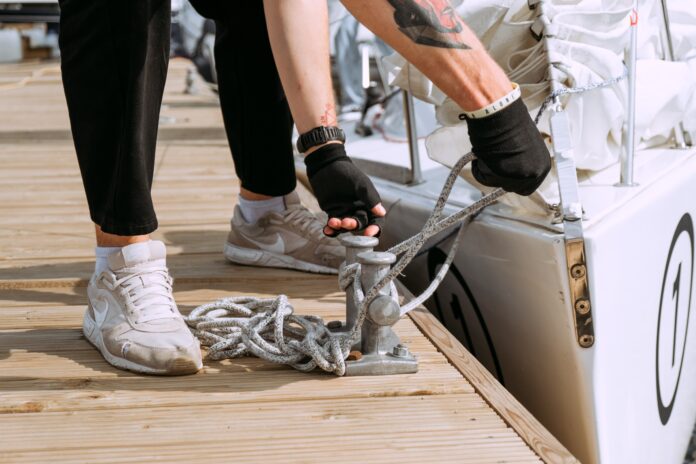When you think of summer, you may crave the feeling of spending time on the water with family and friends. With many activities to choose from like fishing, swimming, or water skiing, which are available in a boat, boat safety can slip to be forgotten at times. This is especially important when you are older.
That said, here are nine tips for making your boat rides as smooth sailing as possible!
Maintain Your Boat
Take time to clean your boat off after every use and check it over thoroughly before your next ride as well.
This will ensure that there are no leaks, holes, or cracks in any parts of your boat, which may lead to sinking or accidents. Or better yet make sure your boat has boat lights to help you see better in the in the dark.
If you are not familiar with how to properly clean and maintain your boat, be sure to ask a friend or family member for guidance, or take a safety course specific to boating.
Be Careful When You Anchor
You need to know how deep the water is where you are anchoring your boat and never anchor in shallow water. Make sure you have enough room for your boat to swing and don’t anchor near any reefs or rocks as that may damage your boat or injure someone if you swing into them.
Anchoring your boat improperly can be very dangerous, so be sure to take the time to do it properly every time.
Know The Area You Are Boating In
Make sure that you know where all of the hazards such as rocks, sandbars, bridges, river channels, and dams are located in the area you plan on boating in before you head out!
Always make sure someone knows where you are going, who is going with you, and when to expect back! This can help rescuers if something does happen while you are out on the water.
Be Sure To Check The Weather
Always make sure that you check the weather forecast before you go out boating as it can change very quickly and may cause your boat to capsize if you don’t know it is coming! The weather can also affect how safe it is to be on the water.
You need to know the weather conditions to dress appropriately and to be aware of what kind of weather conditions to expect while you are out on the water.
Wear Your Life Jacket
You need to wear a life jacket when operating a boat, especially when you are in or around water for long periods, even if there are other people on board with you who are wearing their life jackets.
This is because if one person falls overboard, everyone needs to be wearing a life jacket so that they can be pulled back into the boat quickly and easily. Finding the best life jacket for you can be touch, but you should look for one that is comfortable and fits well.
Stay Near The Shoreline When Boating
You need to stay near the shoreline when you are boating and never go out too far as you may be in danger of being in the path of an oncoming boat or another hazard!
Staying near the shoreline will also help you stay in control of your boat and make it easier to get back to shore if something happens.
Don’t Over-Crowd Your Boat
It is important that you don’t overcrowd your boat as this can make it difficult for you to navigate and control it properly, which in turn increases the risk of a collision occurring. This is why it is a good idea to only take people out with you who are experienced boat operators.
If you plan on having bigger groups of people on a boat, then renting a larger boat may be a better option.
Be Careful When You Approach Other Boats
Always make sure that you approach other boats slowly and cautiously, especially if they are going in the opposite direction to you as this will reduce the chances of a collision occurring!
If you are travelling in a large group, it is a good idea to have one person designated as the lead boat. This can help to keep everyone organized and safe. It is best if this person is the most experienced, as they can make quick decisions if necessary.
Make Sure Your Boat Is Moored Properly
Always make sure that your boat is moored properly and securely so that nobody gets hurt in an accident or if there is any kind of unexpected weather change! You should also never moor your boat too close to another one to avoid any accidents.
If you are not familiar with how to moor your boat, be sure to ask someone for help or take a safety course specific to boating.
To Sum Up
By following these nine tips, you can help make your boat rides as safe as possible for you and your loved ones. Boat safety should always be a top priority, even more so when you’re a senior, so be sure to take the time to implement these tips into your regular boating routine.

























